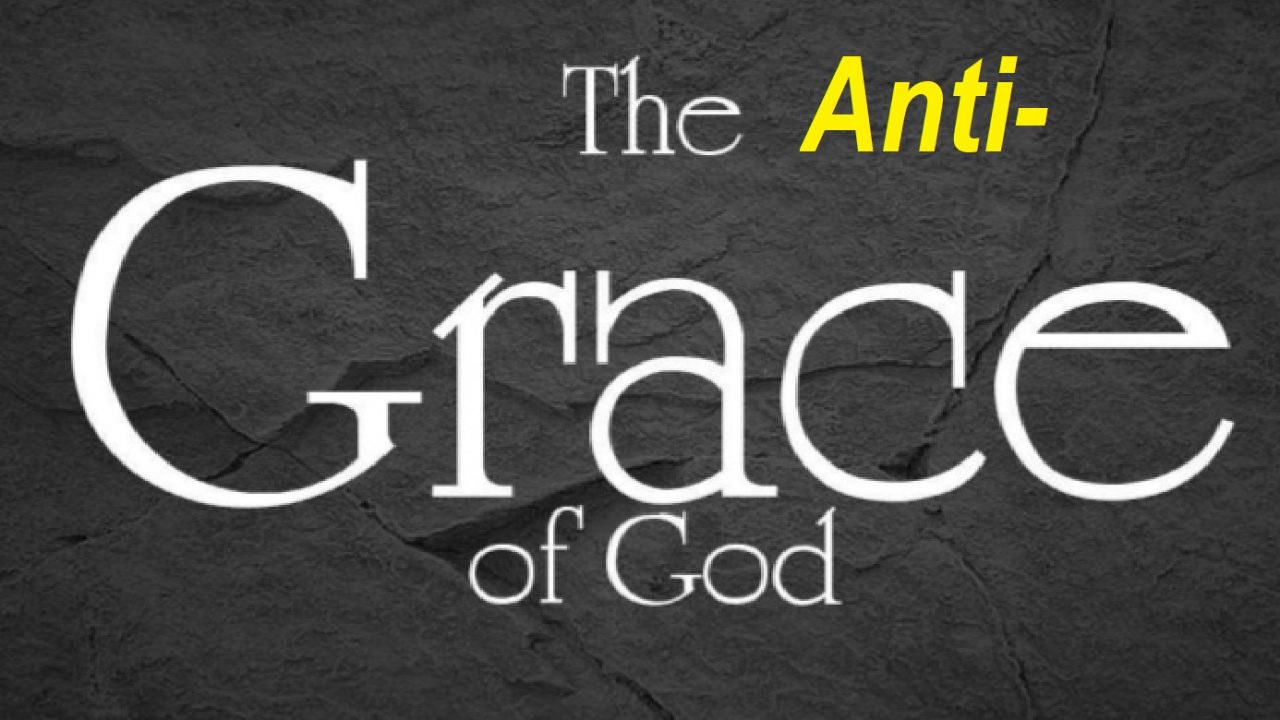John 1:14 famously says when the word of God became a human person people saw the glory of God in His uniquely procreated Son. As a result, the Son, who came from the Father, is “full of grace and truth.” Then, John 1:16 describes how from his fullness we all have been blessed because we have received grace anti grace. The Greek word anti generally means instead of or in place of but has been variously translated as either:
- “Grace upon grace,” i.e., the boundless grace found in Christ;
- “Grace for grace,” i.e., this grace corresponds to the Son’s own grace;
- And rarely as “Grace instead of grace” which, again, is the more common use of anti.
This last meaning is supported not just by the fact that the Greek anti never means upon (that would be the Greek epi) but more importantly by the following verse 17:
For the Law was given through Moses; grace and truth came through Jesus Christ.
This was also the majority view of the so-called Church Fathers and many prominent modern-day scholars. According to the NET Bible “In Jewish sources the Law was regarded as a gift from God (Josephus, Ant. 3.8.10 [3.223]; Pirqe Avot 1.1; Sifre Deut 31:4 §305).” Hence, the parallelism of vv.16-17 means the OC grace that came by Moses was a temporary blessing which has now been replaced by the NC grace in Christ.
Later, Paul would expand on this and make it a prominent theme throughout all his letters, see Eph 1-2; Col 1-2; 2Cor 3 and Gal 2-4. Also note the fact that although the synoptic gospels, especially Matthew, clearly contrast Moses with the Messiah, John’s Gospel is more emphatic. For example, the Gospel mentions Moses by name more than any other Gospel. In John 1:45 Philip says to Nathanael, “We have found him, of whom Moses in the law, and the prophets, wrote about, Jesus of Nazareth.” In John 5:
45 “Do not think that I will accuse you to the Father. There is one who accuses you: Moses, on whom you have set your hope. 46 For if you believed Moses, you would believe me; for he wrote about me. 47 But if you do not believe his writings, how will you believe my words?”
NOTE that in John 9:28 the Jews say “but we are Moses’ disciples,” once again showing the contrast between those who chose to remain subject to Moses.
In the difficult teaching of John 6:32 Jesus once again makes this contrast saying:
Moses didn’t give you bread from heaven. My Father did. And now he offers you the true bread from heaven.
Lastly, in Num. 16:28 LXX Moses said, “Hereby you shall know that Yahweh has sent me to do all these works; for I have not done them of myself.” These words are echoed in the NT when Jesus says things like:
- “The Son can do nothing of himself” (Jn. 5:19);
- “If I do his work, believe in the evidence of the miraculous works I have done, even if you don’t believe me. Then you will know and understand that the Father is in me, and I am in the Father.” (John 10:38)
- “I do nothing of myself, but as the Father taught me” (Jn. 8:28).
And throughout the Gospel words like know, sent me, do these works, not of myself are frequently used: John 13:35; 8:28,42; 7:3,28; 5:30,36; 10:25,37; 14:10; 15:24; 17:4.
The British NT scholar Dr. Wendy North says:
“Nevertheless, John has no intention of allowing Moses-enthusiasts to get these similarities out of proportion.” “Here, any overly exalted view of Moses is flatly contradicted in favour of Jesus. No one has ever seen God in 1.18 must at least be partly aimed at the conviction that Moses had seen God (cf. also 5.37). This is true only of Jesus, John claims, in whom alone God is revealed (1.18; 6.46). We can add here as anti-Moses polemic the sharp correction that it was God, not Moses, who gave the bread from heaven (6.32), and that it was not Moses, but the fathers, who gave circumcision (7.22). If John was prepared to demote Moses in favour of Jesus, he was also prepared to take a yet more radical step, a step which the believing Jews had evidently not taken, and which non-believing Jews could only have greeted with outrage: Jesus in John’s Gospel is the living embodiment of the Word of God, the Torah found in flesh and blood which surpasses and supplants the Law of Moses as the way to God. For this reason, the coming of Jesus is grace in place of grace (1.16), since the glory of God, to which Moses in the Law had borne witness, is now accessible in a human being.” (A Journey Round John, p 125.)
SUMMARY
John’s Gospel, along with the Synoptics, herald the anti–grace of God, i.e., the replacement of the OT Covenant Law of Moses with the NT Covenant Law of the Messiah. And this began with the NT Covenant ministries of both the John the Baptist and his cousin, the Messiah Jesus of Nazareth.




